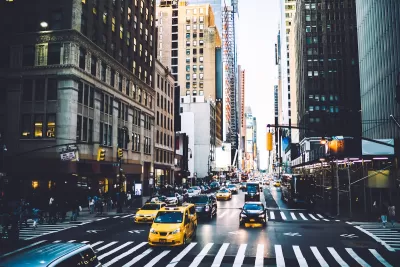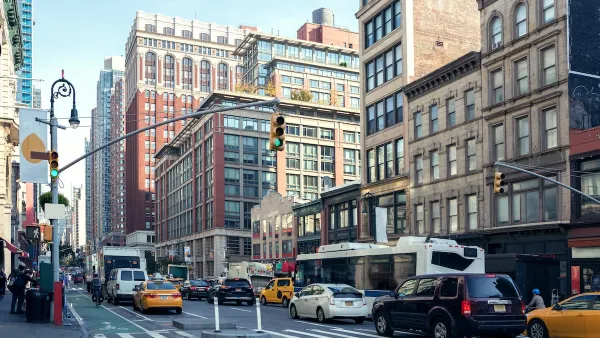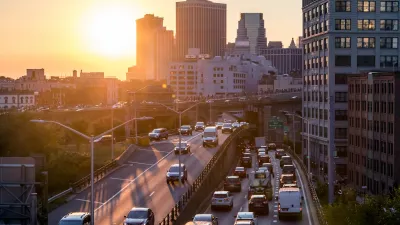The long-awaited program will move forward in January.

New York’s Metropolitan Transportation Authority Board approved the restart of the city’s congestion pricing program, reports Sophia Fox-Sowell in State Scoop. “Starting Jan. 5, passenger vehicles, motorcycles, trucks and non-commuter buses entering the city’s Manhattan central business district, below 60th street, will pay a $9 toll fee, a 40% decrease compared to the $15 toll fee initially proposed earlier this year.”
The entrances to the toll zone will be equipped with vehicle detection technology that will capture vehicle information in all traffic lanes.
Governor Kathy Hochul suspended the program earlier this year, saying the proposed $15 fee was too high. The governor came under pressure to restart the program once national election results became clear, before the incoming Trump administration could kill it permanently.
FULL STORY: MTA approves congestion pricing plan, with vehicle detection technology

Planetizen Federal Action Tracker
A weekly monitor of how Trump’s orders and actions are impacting planners and planning in America.

Map: Where Senate Republicans Want to Sell Your Public Lands
For public land advocates, the Senate Republicans’ proposal to sell millions of acres of public land in the West is “the biggest fight of their careers.”

Restaurant Patios Were a Pandemic Win — Why Were They so Hard to Keep?
Social distancing requirements and changes in travel patterns prompted cities to pilot new uses for street and sidewalk space. Then it got complicated.

Platform Pilsner: Vancouver Transit Agency Releases... a Beer?
TransLink will receive a portion of every sale of the four-pack.

Toronto Weighs Cheaper Transit, Parking Hikes for Major Events
Special event rates would take effect during large festivals, sports games and concerts to ‘discourage driving, manage congestion and free up space for transit.”

Berlin to Consider Car-Free Zone Larger Than Manhattan
The area bound by the 22-mile Ringbahn would still allow 12 uses of a private automobile per year per person, and several other exemptions.
Urban Design for Planners 1: Software Tools
This six-course series explores essential urban design concepts using open source software and equips planners with the tools they need to participate fully in the urban design process.
Planning for Universal Design
Learn the tools for implementing Universal Design in planning regulations.
Heyer Gruel & Associates PA
JM Goldson LLC
Custer County Colorado
City of Camden Redevelopment Agency
City of Astoria
Transportation Research & Education Center (TREC) at Portland State University
Camden Redevelopment Agency
City of Claremont
Municipality of Princeton (NJ)





























